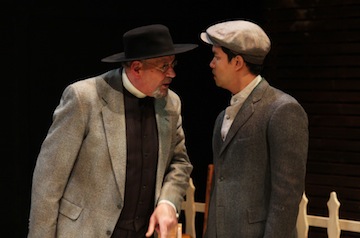YOU NEVER CAN TELL at A Noise Within

Deborah Klugman – Stage Raw George Bernard Shaw’s’s turn of the 20th century rom-com, had a rocky start. Set to debut in 1897, it failed to make it to the stage that year, as actors struggled with the material and…


